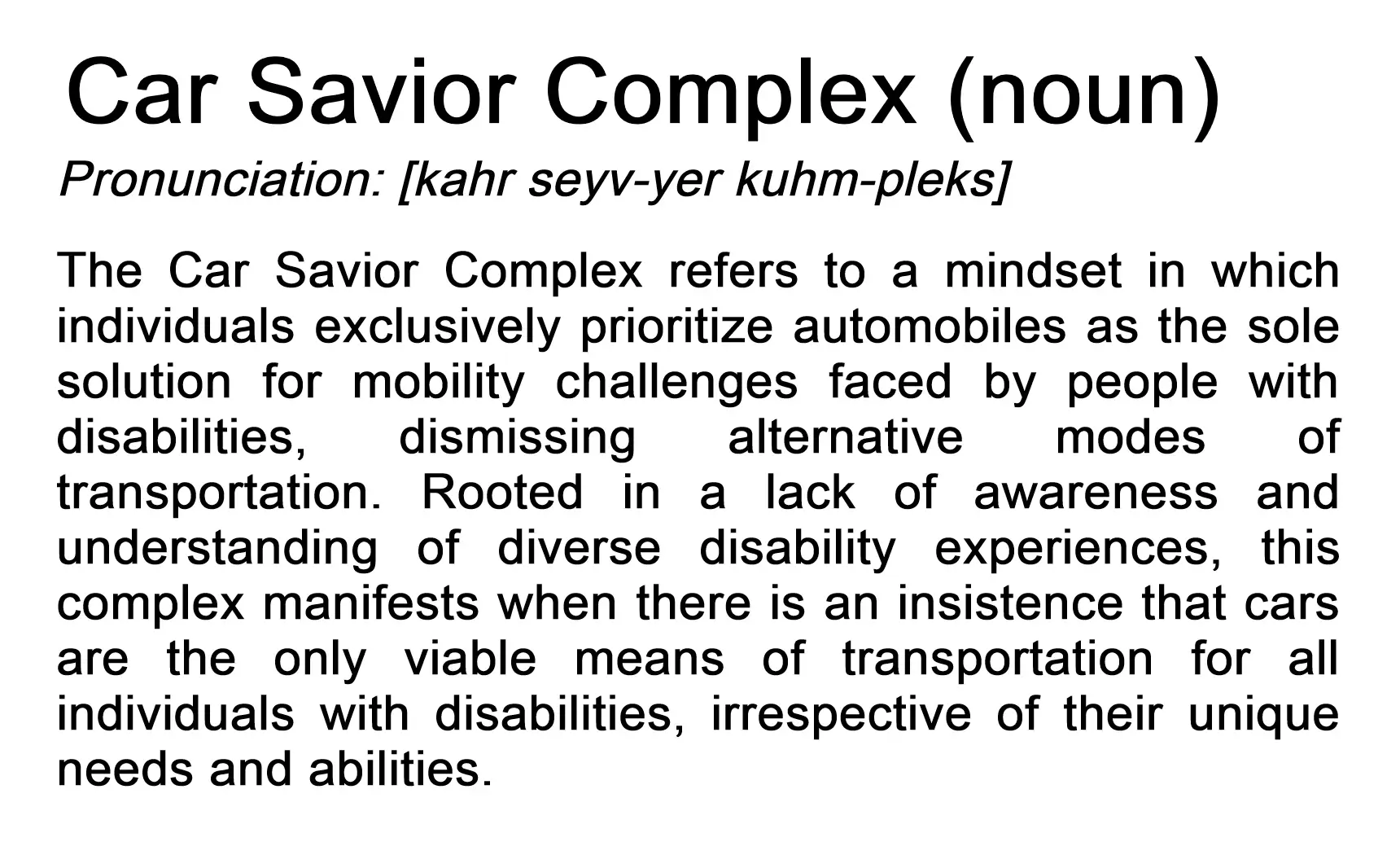Car Savior Complex (noun)
Pronunciation: [kahr seyv-yer kuhm-pleks]
Definition: The Car Savior Complex refers to a mindset in which individuals exclusively prioritize automobiles as the sole solution for mobility challenges faced by people with disabilities, dismissing alternative modes of transportation. Rooted in a lack of awareness and understanding of diverse disability experiences, this complex manifests when there is an insistence that cars are the only viable means of transportation for all individuals with disabilities, irrespective of their unique needs and abilities.
Characteristics:
- Exclusivity: Belief that cars are the only legitimate and practical mobility solution for people with disabilities, disregarding the varied requirements and preferences of individuals within the disabled community.
- Limited Accessibility Consideration: Ignoring the accessibility barriers faced by individuals who may find it challenging to enter, exit, or operate traditional vehicles due to their disability.
- Neglect of Public Transportation: Dismissing the potential benefits of accessible public transportation, shared mobility services, or active transportation methods, which can offer viable options for many people with disabilities.
- Overlooking Environmental Impact: Disregarding the environmental consequences of overreliance on cars, such as pollution and congestion, in favor of prioritizing personal vehicles as the default choice for all disabled individuals.
- Ignoring Socioeconomic Factors: Failing to acknowledge economic constraints that may prevent some individuals with disabilities from owning or maintaining a private vehicle, limiting their mobility options.
Criticism: The Car Savior Complex is criticized for perpetuating a one-size-fits-all approach to mobility solutions, which fails to account for the diverse needs, abilities, and preferences of people with disabilities. This narrow perspective hampers the development of inclusive transportation policies and infrastructure, hindering progress toward accessible and equitable mobility for all.
Usage: The term "Car Savior Complex" is utilized in discussions related to urban planning, disability rights, and transportation advocacy to challenge the assumption that cars should be the exclusive focus of efforts to enhance mobility for people with disabilities.
Example Sentence: "The city's insistence on promoting a car-centric infrastructure reveals a Car Savior Complex, neglecting the needs of disabled residents who could benefit from a more inclusive approach, incorporating accessible public transportation and pedestrian-friendly pathways."

You wouldn't have to invest in a scooter or a car if your region has accessible transit.
Fuck you, too. Just for making fucks at people. In fact, fuck you twice.
I haven't said anything ablist, I've merely objected to your needlessly hostile and antagonistic tone. Calling me ablist without any basis is a transparent attempt to insulate yourself from criticism, you fragile dink.
AKTCUALLY, "technically" I never said you said "fuck you", I said you made fucks at people. And you did. So don't pull that "technically" shit, just gather up all your fucking fucks and fuck off with them.